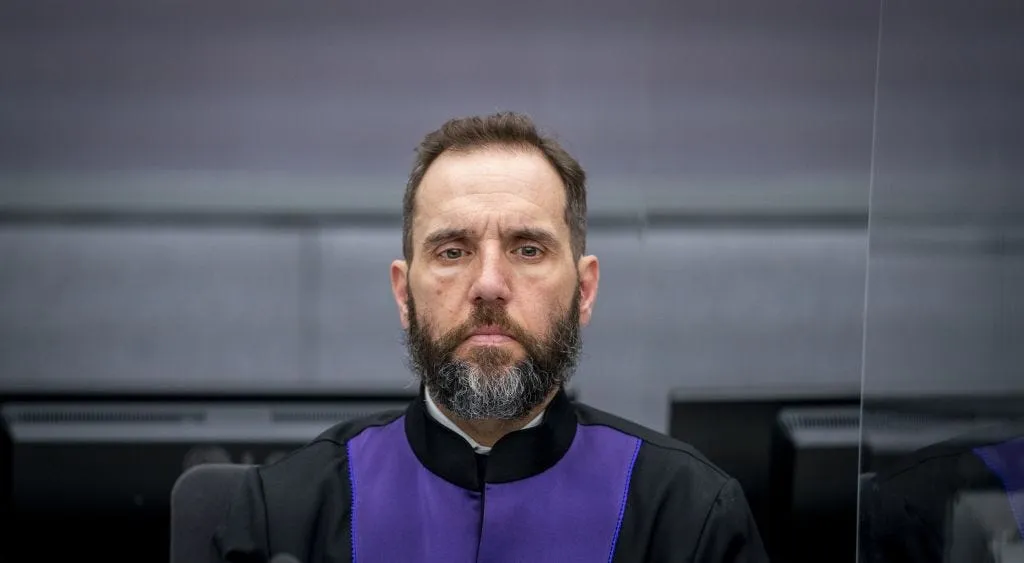News
Understanding the Case Against Trump and the Role of Special Counsel Jack Smith

In the unfolding drama of American politics, the actions of Special Counsel Jack Smith against former President Donald Trump have become a focal point of national attention and controversy. At the heart of the matter is Smith’s decision to use Trump’s phone data as evidence in the upcoming Jan. 6 trial, a move that has sparked debate about the motivations driving this high-stakes legal battle.
The timing of Smith’s actions, coinciding with the eve of Super Tuesday, is noteworthy. It raises an unavoidable question: Is this pursuit rooted in a genuine search for justice, or is it a politically motivated witch hunt aimed at influencing public opinion at a critical juncture?

The case against Trump, particularly the use of his phone data, ventures into uncharted territories of legal and ethical concerns. The extraction of such data from a former president’s phone, especially in the context of highly polarized political times, sets a precedent that could have far-reaching implications. It speaks to the delicate balance between the pursuit of justice and the preservation of individual rights, including privacy and freedom of speech.
Furthermore, the focus on Trump’s social media activity, including every account that interacted with his posts, paints a picture of an investigation that extends far beyond the former president himself. This extensive data collection raises alarms about the potential for overreach and the implications for millions of American citizens who engaged with Trump online.

Critics argue that the actions of Special Counsel Jack Smith symbolize a worrying trend in American politics, where legal tools are wielded as weapons in partisan warfare. This perspective views the case as less about holding a former president accountable and more about setting a narrative that could sway public opinion and political outcomes.
However, it’s crucial to consider the other side of the argument. Supporters of the investigation see it as a necessary step to uphold the rule of law and ensure that even the highest office in the land is not above scrutiny. From this viewpoint, the actions of the Special Counsel are a defense of democratic principles and a guard against potential abuses of power. At least, that is their claim.

In considering the points in favor of Trump, it’s vital to acknowledge the argument of overreach and the potential misuse of justice mechanisms for political ends. Advocates for Trump highlight the absence of direct evidence linking him to a deliberate incitement of the Jan. 6 events. They point to his speech, where he called for peaceful and patriotic protests, as evidence of his non-violent intentions.
Furthermore, they argue that the focus on Trump’s communications is a distraction from more pressing national issues, suggesting that the pursuit of these charges is more about political vendetta than upholding justice. This perspective underscores a belief in the need to protect political figures from judicial overreach, especially when the underlying motivations appear to be driven more by politics than by objective legal standards.
As the case unfolds, it stands as a litmus test for the American justice system and its ability to navigate the murky waters of politics and law. It challenges us as a nation to reflect on the principles we hold dear: the pursuit of justice, the safeguarding of democratic processes, and the protection of individual liberties.
In conclusion, the case against Donald Trump, spearheaded by Jack Smith, is more than just a legal proceeding; it’s a mirror reflecting the deep divisions and the ongoing struggle to define the soul of American democracy. As we await the outcome, one thing is certain: the reverberations of this case will be felt far beyond the courtroom, shaping the narrative of American politics for years to come.
-

 Health3 days ago
Health3 days agoFormer CNN Anchor Chris Cuomo Admits to Suffering from a COVID Vaccine Injury
-

 Featured1 day ago
Featured1 day agoThe Hidden Forces Behind the Anti-Israel Protests at Columbia University
-

 News2 days ago
News2 days agoBoeing Faces 10 New Whistleblowers After Two Die
-

 Featured2 days ago
Featured2 days agoMedia Blackout: 10 News Stories They Chose Not to Tell You – Episode 21





























